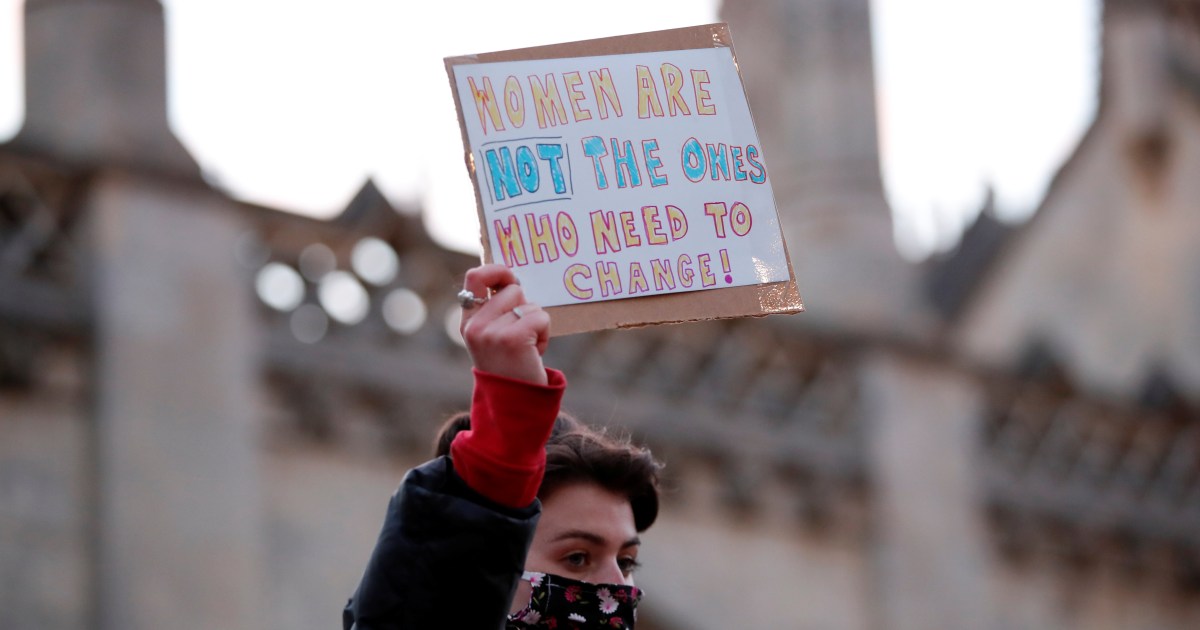UK peers vote in favour of making misogyny a hate crime | Politics News
Move comes as the House of Lords delivers string of defeats to Boris Johnson’s government over its controversial police and crime bill.
The United Kingdom’s House of Lords voted in favour of making misogyny a hate crime in England and Wales during an overnight session that saw British Prime Minister Boris Johnson’s government suffer several legislative defeats.
Peers in the UK Parliament’s unelected upper chamber voted for changing the law so that judges can impose stronger penalties when prejudice against women is proved to be the motivation for abuse.
The amendment would also require police to record whether crimes were driven by the hatred of someone’s gender or sex.
The development puts the peers at odds with Johnson, who along with senior ministers has previously spoken out against designating misogyny as a hate crime. Johnson said in October that “widening the scope” of what police are asked to do would only “increase the problem”.
During the House of Lords session, peers repeatedly voted against several proposed measures and in favour of other amendments.
The vote was part of a debate on the government’s Police, Crime, Sentencing and Courts Bill that began on Monday and lasted until the early hours of Tuesday.
The bill seeks to overhaul the crime and justice system in England and Wales, and spans everything from toughening sentences for people who assault emergency workers to modernising court proceedings.
The most controversial elements of the legislation relate to how protesters could be treated.
The government wants to boost the police’s ability to “tackle non-violent protests that have a significant disruptive effect on the public”.
But critics say proposals to grant police greater powers to control protests are draconian.
The peers rejected government plans to make people found guilty of locking themselves onto objects – a tactic commonly used by protesters – liable to face up to 51 weeks in prison.
They dismissed a proposal that could see people with a history of disruption banned from attending demonstrations.
They also voted against giving police powers to stop and search protesters at random, and creating new offences to punish those who disrupt major transport works and key national infrastructure – a clause which responded to growing demonstrations over the environment that have seen protesters block highways.
They favoured scrapping an act that criminalises begging and rough sleeping and supported protecting London’s Parliament Square as a place to protest.
The bill will now go back to the House of Commons for elected politicians to have their say. It cannot become law until both of Parliament’s chambers have agreed on its clauses, meaning it may now go back and forth between the two until a consensus is reached.




